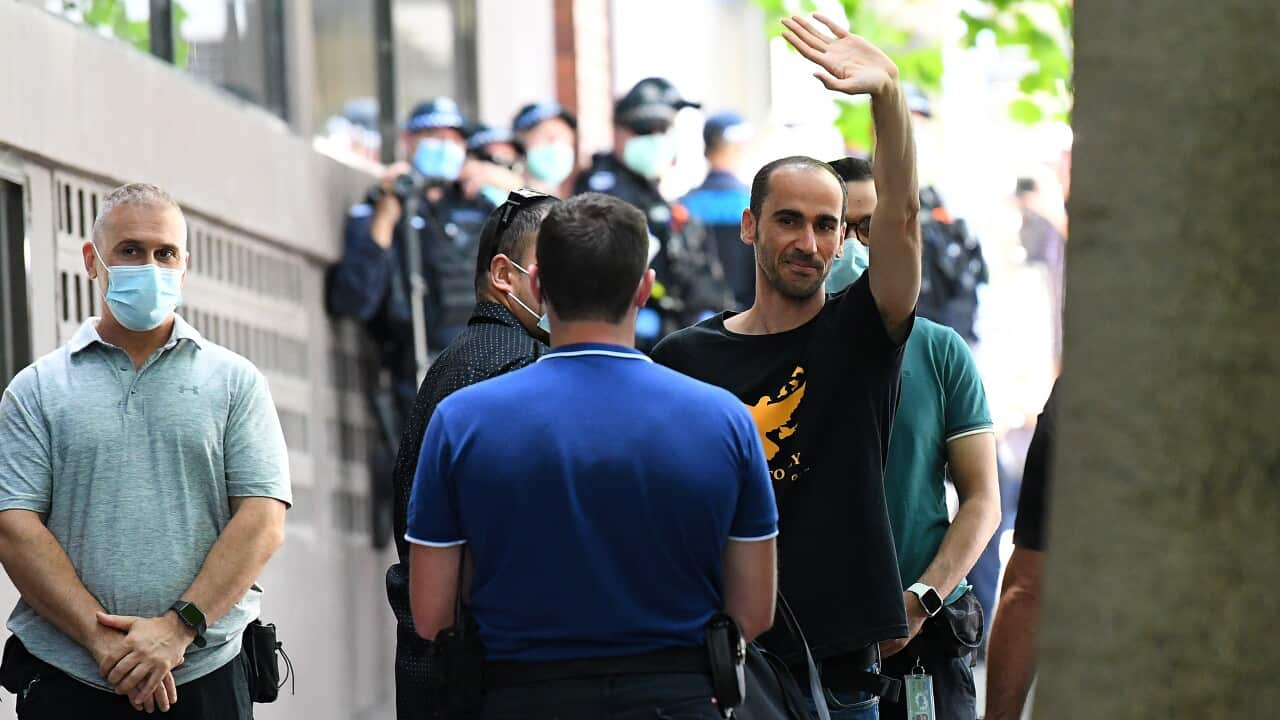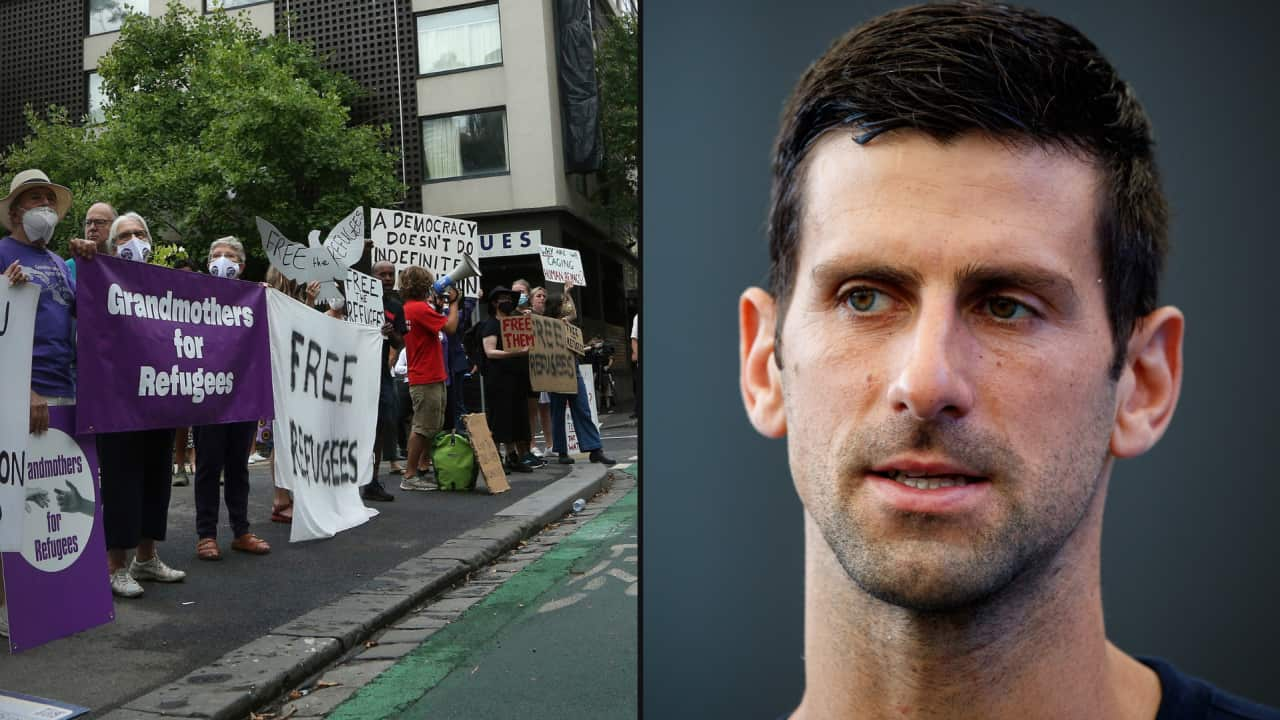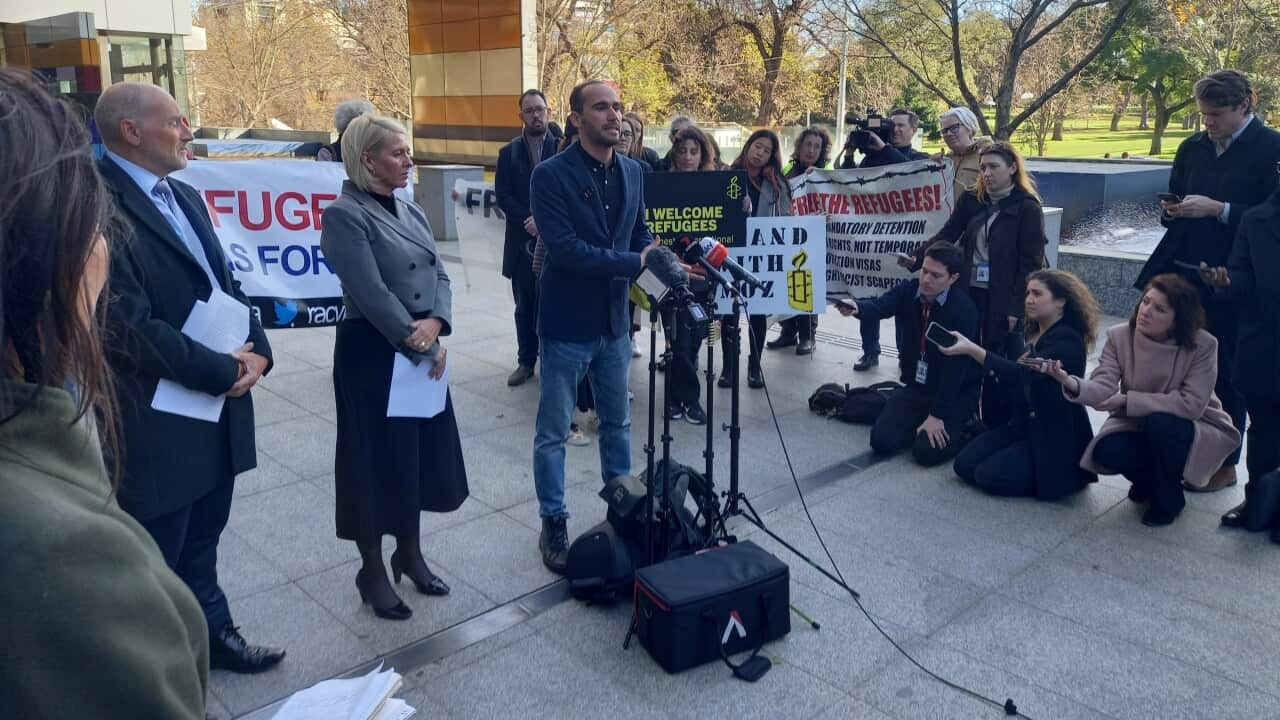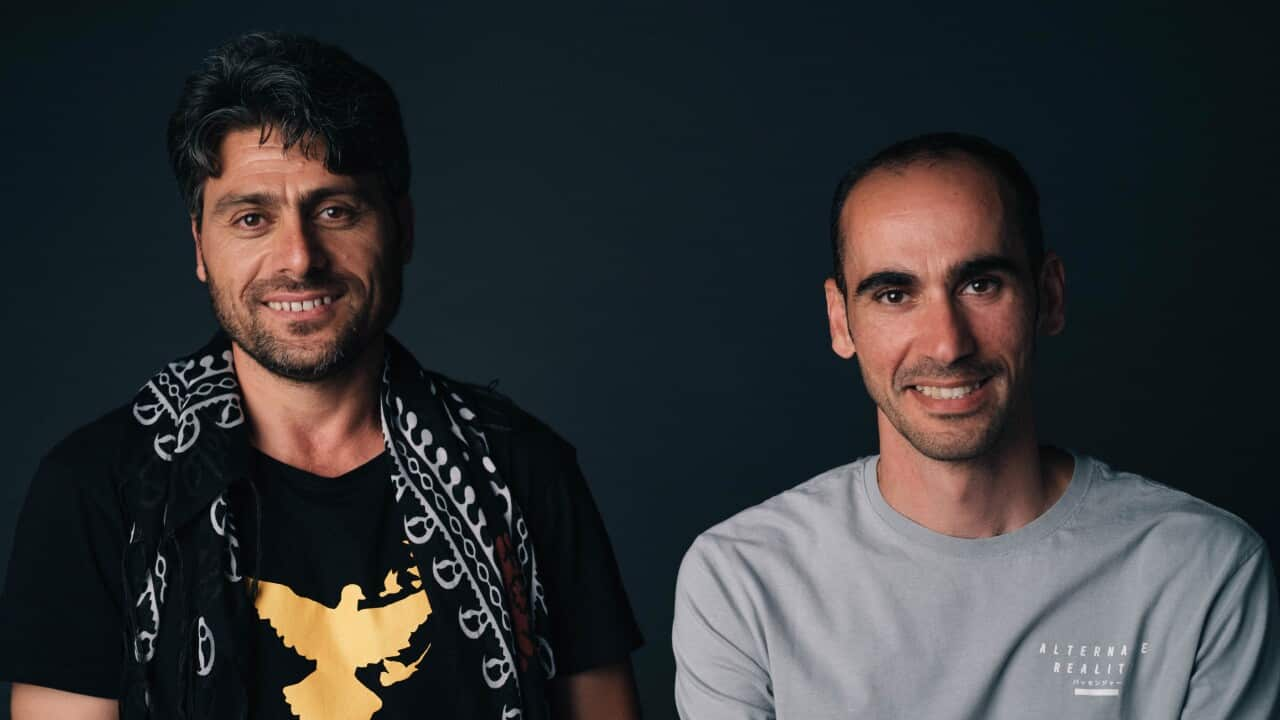Key Points
- Mostafa 'Moz' Azimitabar was held in immigration detention in Melbourne for more than 14 months.
- A year after the case was launched, the Federal Court has today handed down its judgment.
- An appeal is being considered in the case, which advocates say would have wider ramifications for asylum seekers.
Mostafa 'Moz' Azimitabar was held in immigration detention in Melbourne's Mantra Hotel for 13 months, during which he was often locked in his heavily guarded room for up to 23 hours a day.
When the lease expired he was sent to Park Hotel for around two months, along with roughly 65 other men, and released in January 2021.
The Kurdish musician spent seven years in immigration detention on Manus Island before coming to Australia to receive medical treatment as a recognised refugee.
His mental and physical health drastically declined in Australia.
“I spent 23 hours a day in my room and I was waiting for seeing a specialist for my PTSD or my asthma. They didn't do anything for me,”
With the support of Amnesty International, he took the Australian government to court over his time in hotel detention.
A verdict into whether Azimitabar's detention in the two hotels was illegal under the Migration Act was .
The Federal Court judge found that the immigration minister had the legal power to use hotels as makeshift immigration detention facilities during the pandemic. However, while the policy was lawful, he said it lacked care and humanity.
Lawyers for Azimitabar said appeal options are being considered.
Potential ramifications
The case had potential ramifications for the 1,300 refugees and asylum seekers detained in hotels during the pandemic, after they were medically evacuated from offshore detention centres. The government referred to the the hotels used under the policy as Alternative Places of Detention (known as APODs).
Michael Bradley, managing partner at Marque Lawyers, speaking on Thursday before the court ruling came down said if the case had been successful it would have opened the possibility for asylum seekers and refugees detained under the APOD policy to seek compensation.
"If we are successful then the consequence for Moz is that he is unlawfully detained or wrongfully imprisoned and in fact gives him the right to claim compensation for that wrong. The case is determining a principle that would apply equally to anyone who had been in the same situation. They would have the same rights as a consequence," he told the ABC.
Immigration Minister Andrew Giles said he has yet to read the judgment in full, but will be considering the implications for how the policy is to be implemented going forward.
'Torture centre'
In an interview with SBS News in June, Azimitabar described the Mantra not as a hotel but as a "torture centre", as he was unable to open his window for fresh air for more than a year.
"There was not a window … in front of the glass was a cement wall, not a tree, not nature," he said.
"I was locked up in an invisible coffin, they wanted to bury me alive."
He had been told previously by Immigration Minister Andrew Giles that he would never be permanently resettled in Australia because he had arrived by boat.
The Australian Human Rights Commissioner has criticised hotel detention and the lengthy stays detainees face.
A report from the Australian Human Rights Commission, released on Wednesday, found serious human rights concerns persisted in the use of hotels as “alternative places of detention”.
A report from the commission released in June raised concerns about the “discretionary” powers of the immigration minister in determining who gets to be released from hotel immigration detention and the conditions of their release.
While the number of those who are currently detained in hotels has dropped dramatically — from 182 in December 2020, to 29 as of January 2023 — the report found the system had "severe negative impacts" on the mental health of those detained.





